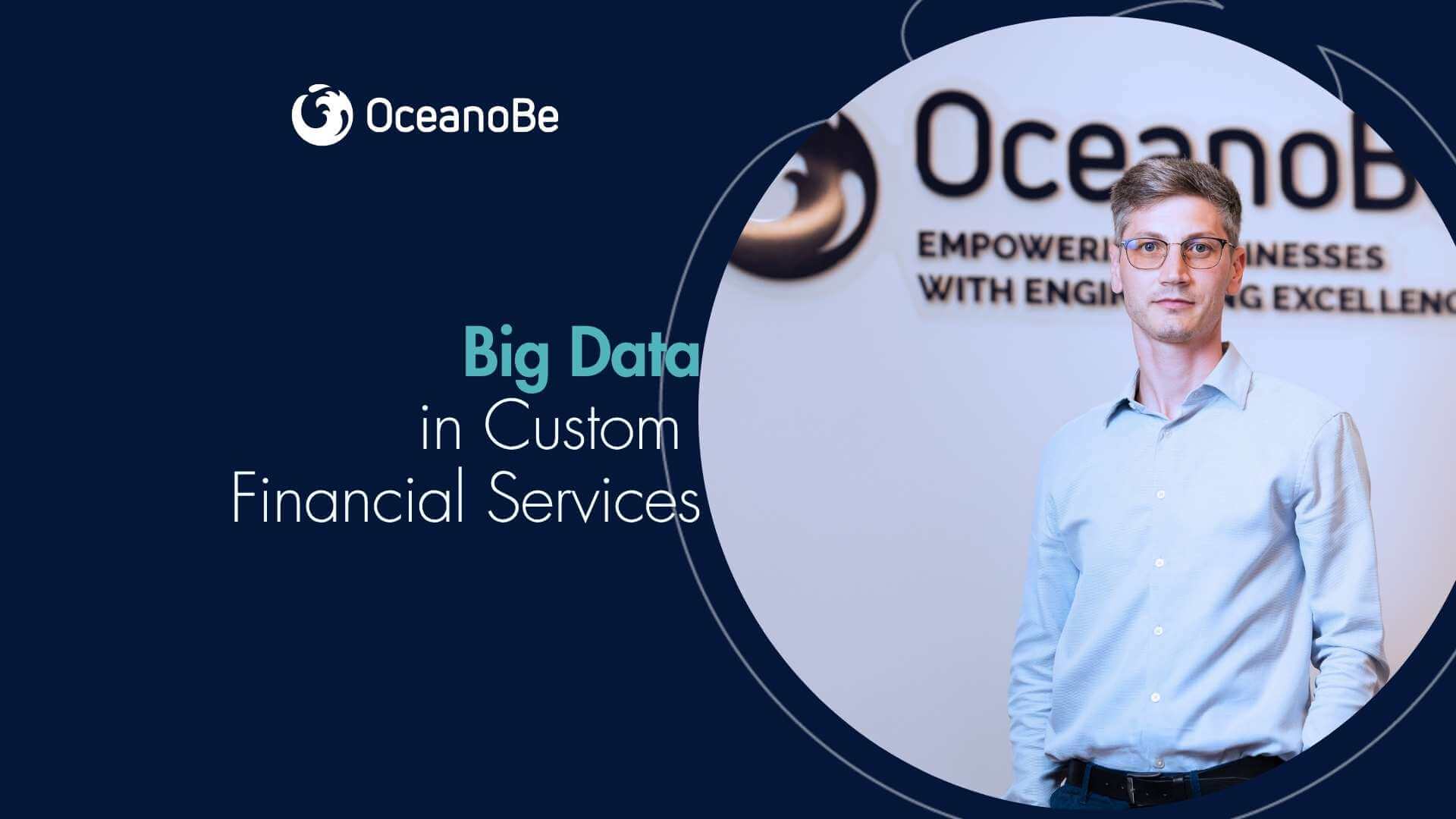Big Data in Custom Financial Services
How data analytics is transforming customer experience, product offerings, and operational intelligence in fintech and banking.
How data analytics is transforming customer experience, product offerings, and operational intelligence in fintech and banking.

Generic offerings no longer cut it. Today relevance, speed, and personalization in every interaction is the norm for user demand. At the core of this transformation is big data — the fuel that powers modern fintech personalization, risk intelligence, and customer loyalty.
Big data refers to the massive volume, variety, and velocity of data generated by customer behavior, financial transactions, online interactions, IoT devices, and third-party systems. For financial institutions and fintech platforms, big data holds the key to hyper-personalization, real-time decision-making, and predictive insights.
Instead of treating users as demographic segments, banks can now understand individuals based on their financial habits, product usage, credit history, and lifestyle choices — all in real time. Personalized loan offers, contextual saving tips, fraud alerts, and investment recommendations are just the beginning.
Behavior-Based Offers: Banks and payment apps can use spending behavior to generate personalized credit limits, cashback offers, or merchant-specific deals.
Smart Risk Profiling: Lenders can assess creditworthiness beyond static credit scores by analyzing social signals, spending consistency, income volatility, and repayment patterns.
Customized Digital Experiences: From UX layout to notification preferences, every touchpoint can be adjusted based on user data to increase engagement and reduce churn.
AI-Driven Financial Coaching: Robo-advisors and budgeting tools use historical patterns and life events to offer proactive advice tailored to individual users.
Extracting value from big data requires more than storage capacity — it demands the right analytics stack. Fintech platforms rely on a mix of real-time and batch processing tools such as:
By combining these tools with AI/ML frameworks, companies can identify trends, detect anomalies, and make smarter decisions at scale.
Despite the promises, working with big data in financial services is far from easy. Some of the key challenges include:
Data Silos | Legacy infrastructure often leads to fragmented data sources, making it difficult to create unified user profiles.
Privacy & compliance | Regulations impose strict guidelines on how customer data can be stored and processed. Mishandling data can result in severe fines and reputational damage.
Data quality | Inaccurate, incomplete, or duplicated data leads to unreliable personalization efforts and poor customer experiences.
Skill gaps | Many organizations lack in-house expertise to architect big data solutions or build reliable ML pipelines.
To truly unlock the potential of big data in financial services, organizations must rethink how data is managed, accessed, and applied across teams. Adopting a Data Mesh approach helps decentralize data ownership, turning domain-specific datasets into accessible, governed products that serve both business and technical stakeholders.
As data flows across various systems—from ingestion to model deployment—ensuring end-to-end encryption and anonymization becomes non-negotiable, especially when dealing with sensitive financial information. Interoperability is another cornerstone: integrating structured and unstructured data across legacy platforms, APIs, and third-party services is essential for a cohesive analytics strategy
But the value of data shouldn’t remain behind the scenes—embedding insights directly into user-facing products through intuitive dashboards, personalized recommendations, or real-time alerts can dramatically enhance engagement and trust. Lastly, continuous investment in data training and governance ensures that models stay relevant, accurate, and fully auditable—meeting the high compliance standards demanded by modern fintech environments.
At OceanoBe, we work with banks, neobanks, and fintech innovators to design and implement modern big data architectures tailored for financial services. Our expertise spans real-time data processing, API integration, secure data lakes, and cloud-based analytics platforms.
Whether you’re planning to personalize financial products, streamline fraud detection, or offer embedded financial insights, we help you scale securely, responsibly, and with precision.